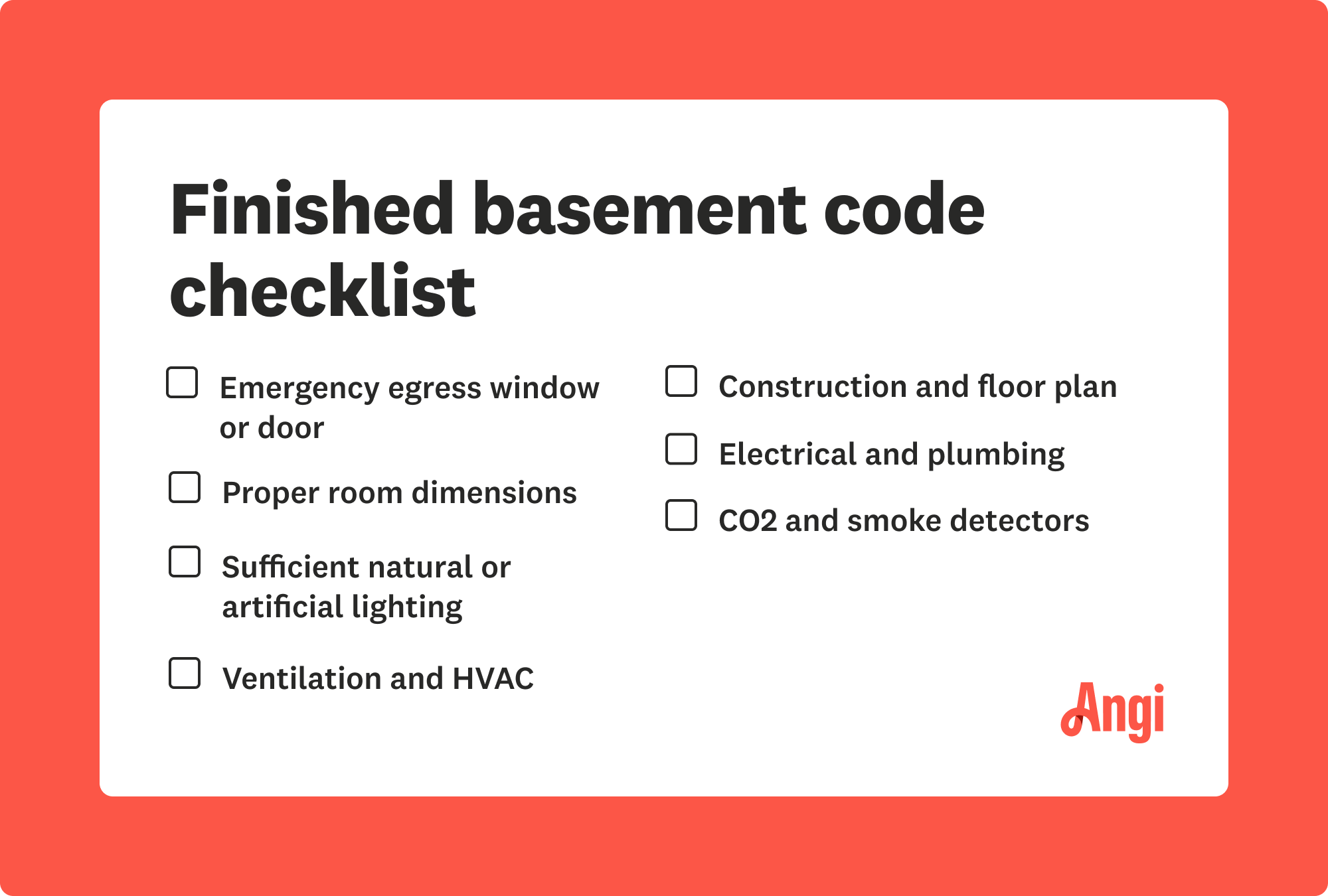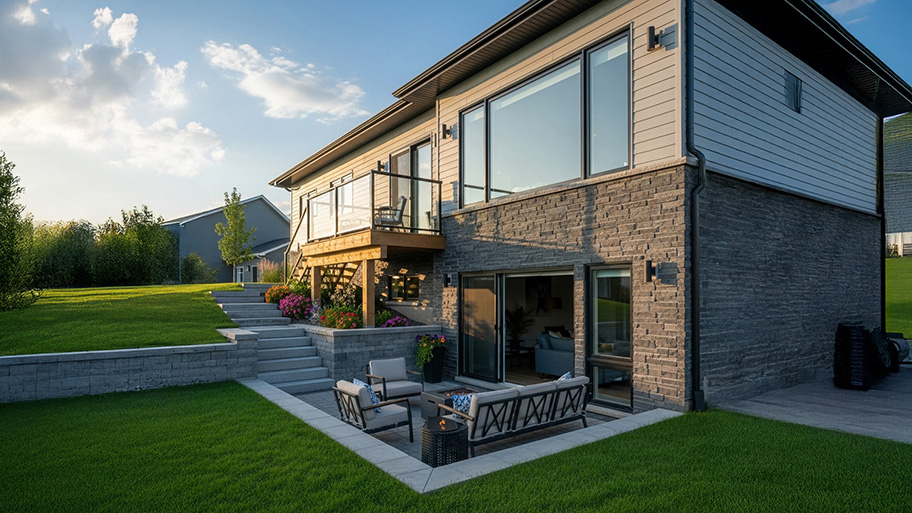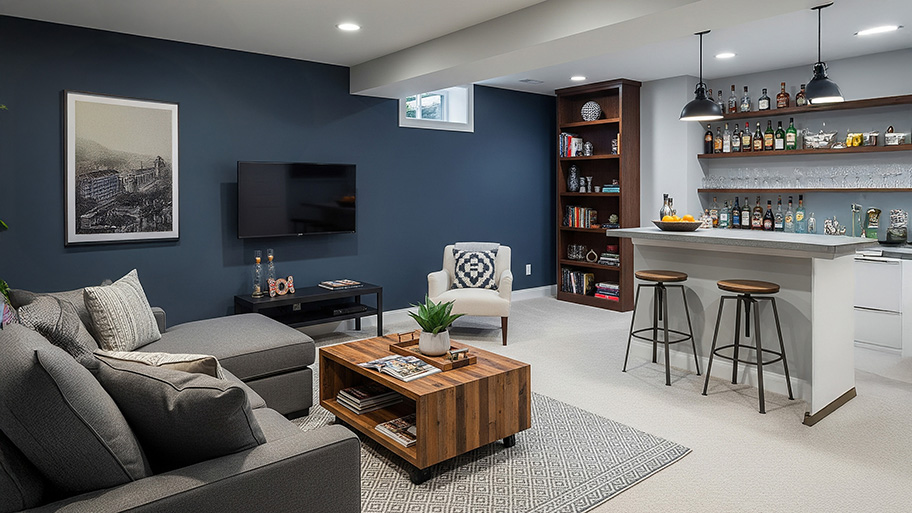
The cost of installing a wine cellar varies based on square footage, the type of wine cellar or wine cave, materials used, where it is located in the property, and where you live. Use this guide to find how much your wine cellar will cost.
Hire a basement finishing expert for the best results


If you need help finishing your basement, you should hire a basement finishing contractor. These licensed professionals hold a general contractor’s license, but they’ll work more quickly and save more money than a standard general contractor who doesn’t specialize in this work. Use this guide to hire a basement finishing contractor for the best results.
A professional who specializes in finishing basements has some advantages over a general contractor who handles all kinds of construction jobs. Here are the benefits of hiring a basement finishing contractor near you:
Expertise: Basement contractors have the knowledge and skills necessary to tackle the unique challenges that come with basement finishing, including moisture control, insulation, proper ventilation, ductwork, and low ceilings.
Building code compliance: Permits are needed to finish a basement. Basement contractors are well-versed in local building codes and regulations because they handle basements day in and day out.
Design: Many basement contractors offer design services that help you choose layout, lighting, and finishes. General contractors are less likely to offer design services, leaving everything to you.
Cost savings: While it might seem counterintuitive, hiring a professional basement contractor can save money in the long run. They can help you avoid costly mistakes and ensure that your project stays on budget.
You can hire a general contractor to finish a basement, but there are some downsides to consider. If they don’t know about specific regulations or restrictions in your area, for example, it could open the door for mistakes. General contractors normally have larger jobs going on, like new construction, so they may not prioritize your project or complete it in a timely manner.
Finally, general contractors will often subcontract parts of the work, like electric, plumbing, and heating. A basement finishing specialist is more likely to have a full suite of pros on staff, which means fewer delays and lower costs.

The process to finish a basement is broken down into several steps. Here’s what a basement contractor will do:
Assess the existing space, which involves inspecting the foundation, pinpointing structural issues or moisture problems, and obtaining the necessary permits
Create a detailed plan for the layout, materials, design, and functionality of the finished basement, working with the homeowner’s vision
Start on construction work, such as framing walls, installing insulation for energy efficiency, and waterproofing
Take care of electrical and plumbing work, ensuring it's up to code
Tie in your heating and/or cooling systems to regulate the temperature
Finish the basement by installing drywall, taping and spackling, painting, installing flooring, and putting up trim
Put finishing touches on plumbing fixtures, lighting, and more
Throughout the project, the contractor manages timelines, coordinates with the necessary specialists, and ensures that all work is completed to the homeowner's satisfaction. Some basement finishing specialists may also offer design services, such as furniture and decor installation.
According to data from Angi, most homeowners are looking for input from a professional, with around 57% wanting a recommendation and 37% of homeowners wanting sketches or a basic idea for a project. Take a look at how other homeowners feel about prep for a basement remodel.
Finishing a basement costs an average of $32,000, and most homeowners pay somewhere between $15,000 and $75,000 to convert the basement to living space. You could pay as little as $3,000 for simply adding walls and flooring to a small basement. Prices can go up to $100,000 if you need to route plumbing, electrical, and HVAC to the space, install a bathroom and a kitchenette, and add an exterior entrance or window wells to create a livable space.
Do your research before diving into a remodeling project. Reach out to as many different types of people as you can, from contractors to remodeling companies, to be as informed as possible on all the modern remodeling options available to you.
It’s possible for homeowners to finish a basement themselves in some cases, but it depends on the work you need done. For example, those with DIY experience can probably install drywall, but they should leave electrical wiring to a professional. When in doubt, hire a local basement finishing pro to help.
Here are some tasks that can be completed as DIY projects, and others that should be left to a professional:
| DIY Basement Finishing Tasks | Tasks for a Professional |
|---|---|
| Demolishing or clearing out the existing space | Making structural changes to the foundation |
| Adding insulation | Modifying a load-bearing wall |
| Installing drywall | Dealing with moisture or water issues |
| Installing basic flooring | Working with electrical wiring |
| Painting walls and trim | Plumbing |
| Installing pre-hung interior doors | Installing or modifying heating and cooling elements |
From average costs to expert advice, get all the answers you need to get your job done.

The cost of installing a wine cellar varies based on square footage, the type of wine cellar or wine cave, materials used, where it is located in the property, and where you live. Use this guide to find how much your wine cellar will cost.

Walkout basements cost more to install than traditional basements. Our guide explores the factors that affect how much a walkout basement costs.

The first step toward a cozy finished basement is adding its framing. How much does it cost to frame a basement? Let's break down the numbers.

Thinking of finishing your basement? Before you do, learn about when permits are required and what happens if you don’t get one before beginning construction.

These questions for professional contractors can help address your basement remodeling needs, design, and the best time to start the project.

Wondering what’s considered a finished basement? Learn what distinguishes a finished basement from an unfinished one and which is right for you in this guide.